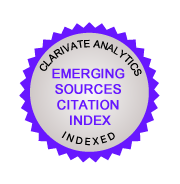COVID-19 AND CAPITALIST STRUCTURE: EVALUATING OF WORKING-CLASS INEQUALITY AND POLICY EFFECTIVENESS IN SOUTHEAST ASIA
DOI:
https://doi.org/10.32890/jis2024.20.2.2Abstract
The COVID-19 pandemic has intensified global social inequalities and disrupted socio-economic stability, as recognized by the World Health Organization (WHO). This study uses Marxist and critical theoretical frameworks to analyze how the pandemic has exacerbated class struggles and socio-economic disparities, focusing on the working and lower-middle classes in Southeast Asia. Through case studies of Indonesia and Malaysia, the research evaluates national policy responses designed to protect these groups. Employing a descriptive and qualitative methodology, including analysis of official data and media discourse, the study highlights how the pandemic has amplified existing contradictions within capitalist systems, leading to increased job losses and widening labor market inequalities. Despite the introduction of economic stimulus packages, these measures often fail to address the underlying systemic issues of capitalism that perpetuate class exploitation and inequality. The paper critiques the capitalist framework for exacerbating the challenges faced by the working class during the pandemic, arguing that these policies offer only temporary relief without tackling the root causes of socioeconomic disparities. This analysis underscores the need for a more transformative approach to understanding and addressing capitalist dynamics in Southeast Asia.























